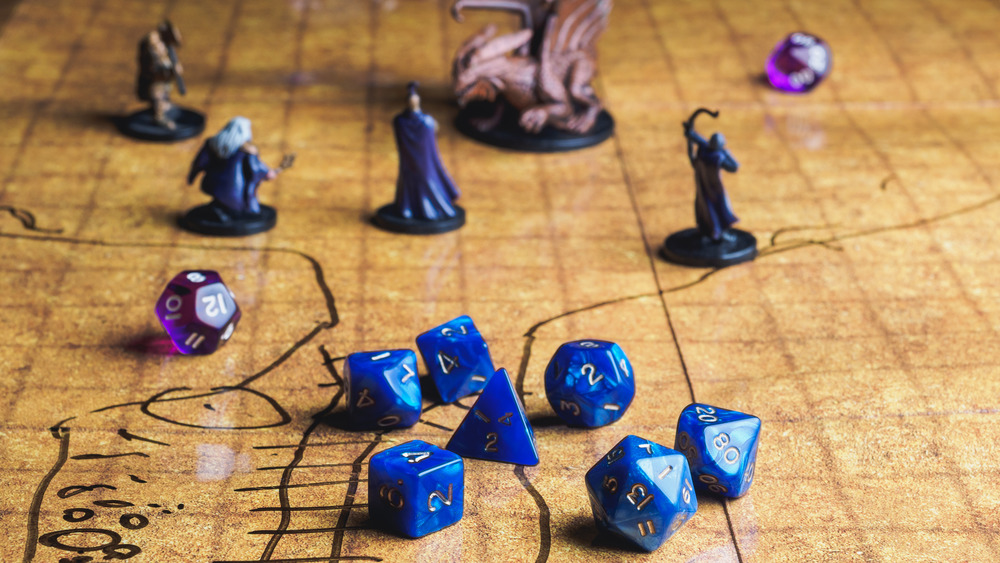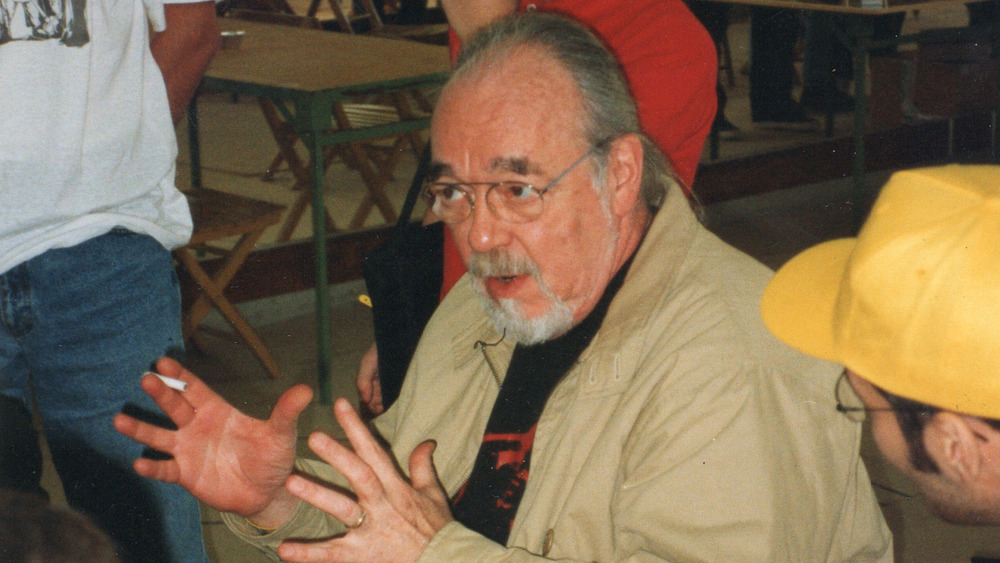D&D: Why Gary Gygax's Wife Was Convinced He Was Having An Affair
We may receive a commission on purchases made from links.
Let's be honest: the joke is almost too easy to make. A guy vanishes for long periods of time into the basement, or "out with friends," week after week, and his partner cries foul. But in the end, he wasn't engaging in a rampant escapade of infidelity. He was on a gaming crusade in a dimly lit basement playing with 20-sided die, hunched over hand-drawn maps and pretending to hack and slash his way through a tentacled Beholder with a +3 Holy Rapier. Toss in some Cheetos, candles, dollar-store capes, and terrible voice acting, and you've got the makings of a cliché that's only about 20 percent untrue.
This, as a Reddit thread outlines, was the life of one of gaming's most influential humans: Gary Gygax, the "Father of Role-Playing Games," whose actual name sounds like a fictional character in a fantasy setting of his own invention. Gary Gygax created Dungeons & Dragons, or D&D, which is, without any degree of exaggeration, the single most influential game in modern gaming history. And we say "gaming," rather than "board games" or "card games," because even though D&D is technically a table-top game, it's responsible for establishing the foundation of every single subsequent RPG video game (including collosi Dragonquest and Final Fantasy), board games like Warhammer 40k, card games like Magic: The Gathering, and every single resultant piece of nerd culture, cosplay, online forums, fan fiction, TV shows, movies: you name it. Gygax is, simply put, the Tolkien of games.
D&D's all-consuming origins led to Gygax's wife's suspicions
Hit points, magic points, dungeons, turn-based combat, buying and selling goods, melee and ranged attackers, offensive and defensive spells, resting, treasure chests: all of these mechanics and more come straight from D&D. But unlike a game with strictly defined progress and outcomes, like Clue or Monopoly, these mechanics merely form the framework of Dungeons & Dragons. Within it, gamers can devise whatever world, narrative, characters, and goals they want, and play infinitely. Or as Gygax's grandson told Wired, "It's written in every man's heart — we want to feel like warriors. That's what Gramps let people do."
Dungeons & Dragons itself was inspired by '60s and '70s wargaming communities, as Geek and Sundry tells us, and resulted from a collaboration between Gygax and friends Dave Arneson and Jeff Perren. Gygax and Perren designed the game Chainmail, which used miniatures and was meant to simulate medieval combat. Arneson, inspired by Chainmail, created Blackmoor, a Lord of the Rings-like game featuring a single hero in a fantasy setting. Gygax drove from his Lake Geneva, Wisconsin home to Arneson's place to check it out, and a mere two years later in 1974 published the first edition of Dungeons & Dragons. He couldn't find a publisher, and so he founded his own company, Tactical Studies Rules (TSR), to do so.
All of this took quite a bit of time, and was enough to make Gygax's wife Mary Jo suspicious of his faithfulness.
Mary Jo's fears eventually became true
To be fair, it's easy to see why Gygax's wife Mary Jo would have been upset, at minimum. Gygax was unemployed while he did all this, ever since losing his job as an insurance underwriter. Unemployed and, yes, to complete the stereotype, playing games in his basement. As outlined in the 2015 book Empire of the Imagination: Gary Gygax and the Birth of Dungeons & Dragons, Gygax was so consumed by playing and developing games that he shirked responsibilities to his kids, jobs, and other commitments. When Mary Jo was pregnant with their second child she confronted Gygax, convinced he was having an affair, only to find him in the basement, drawing maps.
Ironically, though, Gygax would go on to have multiple affairs, but not until D&D was such a smash hit that TSR grew to have 600 employees in less than a decade. He and wife settled on an acrimonious divorce at the same time that he flew out to Hollywood to finalize a deal for a D&D animated show. Eventually, Gygax moved into a mansion in Beverly Hills.
Gygax's relationship with Arneson also fell apart over credit for D&D, stakes in TSR, and royalties. Arneson, who until his death in 2009 taught game design at Full Sail University, said, "When the money came, people's personalities changed. That's all I'm going to say. Everything went fine when it was just a bunch of guys working out of basements."
Gygax himself passed away in 2008 at the age of 69.


